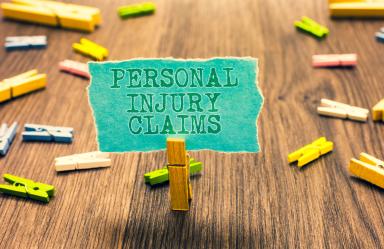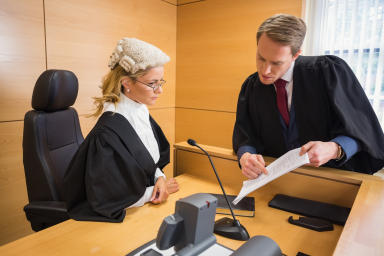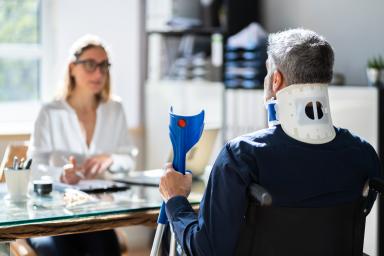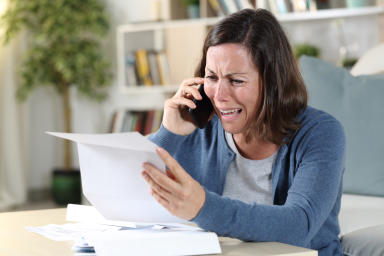Massachusetts Personal Injury Laws

Injuries are bodily harm that may result from vehicle and workplace accidents, animal attacks, professional negligence, or poor facility maintenance. Car accidents are among the most common reasons people get hurt in Massachusetts. In 2021, roadway crashes injured 2,884 people and killed 418, including 76 pedestrians, 5 bicyclists, 82 motorcycle operators and passengers, and 254 motor vehicle operators and passengers. The number of fatalities was the highest in 14 years, according to the data reported in the Massachusetts DOT 2023 Strategic Highway Safety Plan.
To achieve zero roadway fatalities and serious injuries, the state adopted the U.S. DOT’s Safe System Approach, a framework that addresses roadway safety in a holistic way. It anticipates human mistakes and identifies and eliminates transportation risks. Safe system principles include that death and serious injury are unacceptable; humans make mistakes; humans are vulnerable; responsibility is shared; safety is proactive; and redundancy is crucial.
To create safer roadways, Massachusetts is pursuing six initiatives. These include implementing speed management to determine safer speeds; addressing top-risk populations and locations; influencing change in vehicle features, design, and use; accelerating research and adopting technology; doubling down on what works; and carrying out new ways of educating the public. It also implements various federal and state laws related to personal injuries, which will be discussed throughout this article.
Massachusetts Auto Accident Laws
If you get involved in a car accident, it is important to stay calm, prioritize your health and safety, and preserve any evidence that can help you and your lawyer recover compensation for your injuries and property damage. After the accident, move your car to a safe location if possible. Call 911 and request emergency medical services. When talking to the police, try to give facts about the accident and request that they file a police report. Take pictures and video recordings of your injuries, the accident scene, and property damage. Write down information about the other driver, including name, contact information, and insurance details. If it is safe to do so, talk to other drivers and pedestrians who have witnessed the accident and ask for their testimony about what happened. It is also important to inform your insurance provider and a car accident lawyer who can help you with your case.
Minimum Auto Liability Insurance Requirements
Motor vehicle drivers in Massachusetts are required to carry auto liability insurance with the following minimum limits:
$20,000 for bodily injury per person;
$40,000 for bodily injury per accident for two or more persons;
$5,000 for property damage;
$8,000 PIP coverage;
$20,000 uninsured motorist coverage per person;
$40,000 uninsured motorist coverage per accident.
Drivers who are caught operating a motor vehicle without insurance may face a fine of at least $500 and be required to pay an amount equivalent to a one-year insurance coverage premium.
Massachusetts Is a No-Fault State for Auto Insurance Claims
Massachusetts adheres to a no-fault system, under which motor vehicle operators are required to carry personal injury protection insurance. PIP pays up to $8,000 in compensation for medical expenses and up to 75% of lost wages. If the injured person carries health insurance, PIP will cover only up to $2,000 in medical expenses. In some cases, the $8,000 limit may not be enough to cover the damages. The victim may then file a third-party insurance claim against the insurance company of the negligent driver or bring a personal injury lawsuit.
Massachusetts Medical Malpractice Laws
Medical malpractice happens when a healthcare provider fails to give the patient the minimum standard of care, resulting in injuries or even death. Actions that constitute medical malpractice include interpreting a test result incorrectly, failing to diagnose a condition or illness, mixing up test results, prescribing the wrong medication, and leaving a foreign object in a patient’s body.
Just like in other personal injury cases, you are entitled to receive compensation for economic and non-economic damages if you suffer injuries resulting from a medical professional’s negligence. The state imposes a $500,000 cap on non-economic damages in medical malpractice cases. However, the court may award an amount higher than the cap if the victim’s injuries include a substantial disfigurement or permanent loss of bodily functions.
Additionally, medical malpractice cases are subject to a three-year statute of limitations and a seven-year statute of repose except for cases where the medical practitioner left a foreign object inside the victim’s body. A statute of repose puts a limit on filing a motion to add facts to or amend the medical malpractice complaint. It also cannot be delayed or tolled, regardless of the victim’s age.
Massachusetts Premises Liability Laws
In Massachusetts, homeowners and business owners can be held legally responsible if they fail to meet their duty of care to lawful occupants or visitors of their properties. They are required to cover damages if their negligence results in injuries or death to other people. The property owner may be deemed negligent if they knew, or should have known, about the property’s unsafe condition but did not take any action to correct it.
The law requires property owners and managers, landlords, and business owners to ensure that the risks of injury are minimized, if not eliminated, in terms of the design, construction, condition, and maintenance of their facilities and establishments. For example, if the business owner or manager is aware that there is a faulty door in their building, they should arrange for a repair or replacement. Otherwise, if they leave the door in that condition and it causes an injury to a customer, they will be held liable for the accident.
There are also situations where the injured person may not be able to recover damages from the property owner. For example, if the victim is on another person’s property without permission, they are not entitled to compensation for injuries due to unsafe conditions on the premises. However, this rule does not apply to children. Massachusetts follows the “attractive nuisance” doctrine, which requires property owners to exercise reasonable care to prevent injuries to potential child trespassers. An exception applies to individuals who get injured while engaging in recreational activities on a property that is free of charge, including parks and public properties.
Dog Bite Laws
Massachusetts applies the doctrine of strict liability to dog owners, regardless of the age and breed of the dog. This means that dog owners can be held responsible if their pet causes damage to property or injuries to other people, whether or not they took precautions or the dog had attacked someone before. However, they cannot be held liable if the other person was trespassing and abusing, tormenting, or teasing the dog, unless the victim is a child under seven years of age. If this happens, the owner will still be liable for the injuries caused to the minor.
Anyone may also file a written complaint with the local police officer or government official that a dog is a nuisance or dangerous. A dog may be considered a nuisance if it annoys a sick resident, disrupts people’s peaceful enjoyment, or has attacked or threatened a person, livestock, or a domestic animal. It may be deemed dangerous if it kills or injures a person or a domestic animal or behaves in a way that might kill or injure anyone. However, the dog cannot be declared dangerous based only on its breed, a history of attacking someone to protect or defend itself, or if it attacks a person committing a crime or entering its enclosure.
If a dog is considered a nuisance or dangerous, the local authority may require the owner to take action, which may include the following:
Restraining the dog humanely
Confining the dog within the owner’s premises;
Using a muzzle and strong dog leash when the animal is out of the owner’s property;
Obtaining a $100,000 insurance policy;
Providing authorities with information, such as microchips, veterinary records, or photos, that can help identify the dog;
Requiring the owner to have their dog neutered or spayed;
Euthanizing the dog humanely.
Massachusetts Workers’ Compensation Laws
Accidents in the workplace can happen at any time. In 2019, approximately 86,000 work-related illnesses and injuries were reported by employers from the public and private sectors, according to the Massachusetts Department of Labor Standards.
Massachusetts law stipulates that workers injured at the workplace are eligible for workers’ compensation benefits. They are entitled to receive payments to cover lost wages, medical expenses, and vocational rehabilitation. Injured workers who have been denied compensation by the insurance company may file an appeal with the Department of Industrial Accidents.
Filing a Worker’s Compensation Claim
To apply for workers’ compensation benefits, injured employees must follow the steps for filing claims as outlined below:
Download and complete the Department of Industrial Accidents’ Form 110 - Employee’s Claim;
Prepare three copies of the completed form and the supporting documents;
Send the original copy of the accomplished form with the supporting documents to the DIA;
Send a copy of the signed form to the workers’ compensation insurance carrier of the employer by certified mail;
Wait for the DIA’s response.
The DIA can reject the form and send the documents back to you. If it rejects the claim, it must explain in writing why the claim was rejected. Alternatively, it may send a notice to the claimant, the employer, and the insurance company regarding the meeting date, time, and place with the conciliator to discuss the claim.
Some of the benefits that the injured worker may receive are payment for medical expenses, wage loss, vocational rehabilitation, and death. If the claim is denied, an appeal should be filed within 30 days of the rejection. This can be done by completing and mailing the DIA’s Form 112 - Appeal to Reviewing Board, including the filing fee, to the Reviewing Board Fee Processing, Department of Industrial Accidents, Lafayette City Center, 2 Avenue de Lafayette, Boston, MA 02111.
Workers’ Compensation Insurance Requirements
In Massachusetts, employers are required to secure workers’ compensation insurance for themselves and their employees. This rule does not apply to limited liability companies, partnerships, and sole proprietorships. Additionally, corporate officers with at least 25% interest in the corporation may request to be exempted from this coverage. Failure to carry workers’ compensation insurance may result in a stop work order being issued by the Department of Industrial Accidents. Violators may face a minimum fine of $100 per day, including holidays and weekends, starting from the date the SWO was issued. The employer may also face criminal charges, which carry penalties of $1,500 in fines and one year in prison.
How Much Can Someone Sue for an Injury in Massachusetts?
The settlement amount in personal injury cases differs from case to case based on several factors, including the extent of damage, nature of injuries, and location of the accident. In general, the amount of compensation should cover economic, non-economic, and punitive damages. The state does not impose a cap on the amount that can be obtained in personal injury cases, except when you are injured because of a defect in a public way, in which case the compensation is capped at $5,000.
Economic Damages
Economic damages are financial losses suffered by the injured victim. These include present and future medical costs, lost wages and future earning capacity, and property damage.
Non-Economic Damages
Non-economic damages are intangible losses resulting from the accident. These include pain and suffering, physical impairment, lost enjoyment of life, and mental anguish. Placing a monetary value on non-economic damages can be difficult. The most common approach used by lawyers and insurance companies is the per diem method. It involves equating the value of pain and suffering with the victim’s daily wage. Another option is the multiplier method, where the lawyer assigns a number between 1.5 and 5 and multiplies it by the financial losses of the victim.
Punitive Damages
Punitive damages may be awarded to punish the defendant for their gross negligence and willful intention to hurt other people. It may be assigned if the liable party caused a serious accident that resulted in the death of the injured victim.
Massachusetts Is a Modified Comparative Negligence State
The settlement amount may also be affected by the liability of each party involved in the accident or incident. Massachusetts follows a modified comparative negligence system with a 51% bar rule, which means the victim can still recover compensation even if they are partially or equally at fault unless it exceeds 50%. The compensatory award will be reduced by the victim’s fault percentage. For instance, if the plaintiff is entitled to receive $100,000 in compensation and the court determines that they are 20% responsible for the accident, the amount of compensation will be $80,000. However, if the plaintiff is 51% liable, they will not receive any compensation.
Statutes of Limitations in Massachusetts
For personal injury cases, the statute of limitations in Massachusetts is three years. This means individuals injured due to other people’s negligence should file a lawsuit within three years of the accident date. For wrongful death cases, the deadline is three years from the victim’s death.
There are several situations when the statute of limitations may be affected. If the injured person is a minor or mentally incapacitated, the statute of limitations clock begins when they turn 18 or when their competence is restored. If the defendant is outside of the state, the statute clock will not run until they return to the state. For people who were injured because of a defect in a public way, the accident should be reported to the appropriate municipality within 30 days of the accident. However, the deadline will not be delayed or tolled even if the negligent party fraudulently conceals their liability.
A workers’ compensation claim should be filed within four years of the date when the injured worker became aware of the connection between their injuries and employment. If the injured worker dies, their next of kin or legal representative should file a claim within four years of the worker’s death.
Legal Resources for Injured Persons in Massachusetts
Massachusetts Bar Association Lawyer Referral Service
The Massachusetts Bar Association’s LRS is a legal referral service that connects residents to qualified MBA attorneys. Its online referral service is available 24/7. The service may be reached by phone at 617-6540-9499 or 866-627-7577, or by email at LRS@massbar.org. MBA also conducts a monthly dial-a-lawyer program that assists bay staters with their legal problems. The dial-a-lawyer service is accessible by phone at 617-338-0610 or 877-686-0711 on the first Wednesday of the month between 5:30 p.m. and 7:30 p.m.
Brain Injury Association of Massachusetts
The Brain Injury Association of Massachusetts is a nonprofit organization that offers counseling and support to survivors of brain injuries and their families. It organizes social, recreational, and educational activities and provides a platform for the survivors to meet other people who share the same experience. It also advocates for legislation that can improve community services and safety laws regarding motor vehicle operation, including seat belt and helmet use. BIA-MA’s office is located at 30 Lyman Street, Suite 10, Westborough, MA 01581, and their helpline is 1-800-242-0030.
Massachusetts State Police
The Massachusetts State Police enforces statewide laws and maintains tactical, investigative, and support units. Individuals involved in a motor vehicle accident may request a copy of the police report online, by email at msp.rao@state.ma.us, or by phone at 774-462-3770. You may also send a letter to Primary RAO, Massachusetts State Police, 50 Maple Street, Milford, MA 01757.
Expertise.com StaffAuthor
Step into the world of Expertise.com, your go-to hub for credible insights. We don't take accuracy lightly around here. Our squad of expert reviewers, each a maestro in their field, has given the green light to every single article you'll find. From rigorous fact-checking to meticulous evaluations of service providers, we've got it all covered. So feel free to dive in and explore. The information you'll uncover has been stamped with the seal of approval by our top-notch experts.




